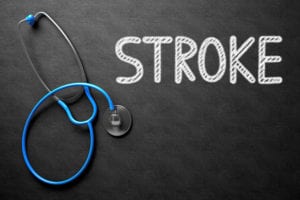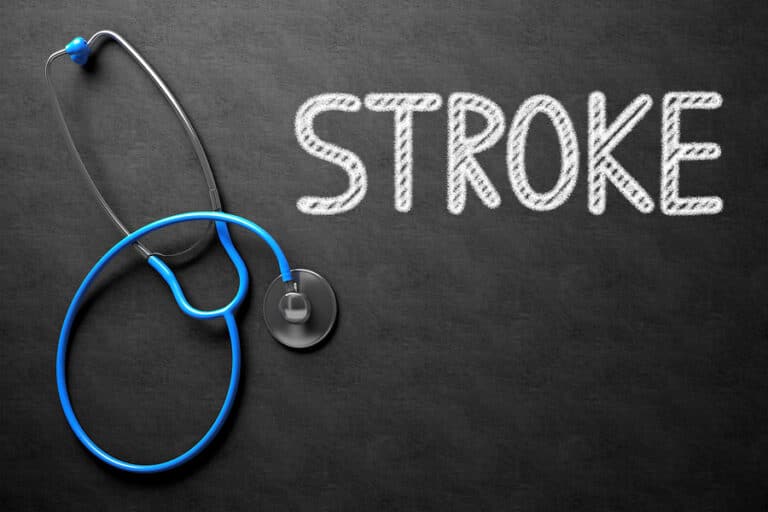
May is National Stroke Awareness Month, a perfect time to bring awareness to this disease that affects nearly 800,000 people in the United States every year. Stroke is the leading cause of preventable long-term disability.
Cause.
Most strokes are ischemic strokes that occur when a blood clot or mass blocks a blood vessel and cuts off the flow of blood and oxygen to that part of the brain. According to the American Stroke Association, 80 percent of strokes are preventable.
What to look for.
Getting immediate care for your parent should a stroke occur is one of the key factors in limiting long-term disabilities. Know what to look for so that you can get the emergency medical response team on their way in minutes. The acronym F.A.S.T is used to help people remember the signs and the response.
F for FACE: One side of a person’s face may exhibit paralysis—seen as the corner of their mouth not going up into a grin when they smile.
A for ARMS: Have your parent lift their arms. You will notice that on one side their arm will begin to drift down.
S for SPEECH: Their speech may be slurred or unrecognizable.
T for TIME: If you notice any of these symptoms, it is time to call 911.
Prevention.
High blood pressure is the number one cause of stroke. Make sure your parent’s blood pressure is monitored on a regular basis and help them keep their pressure under control by providing them with heart-healthy meals, scheduling daily physical activities and reminding them to take their medication should their primary health care provider prescribe one. Heart disease and high cholesterol are two other risk factors associated with strokes. Atherosclerosis, or plaque formations in the arteries, can reduce blood flow and ultimately cause a stroke. Make sure to check their blood sugar on a regular basis. Those with diabetes are two to four times more likely to have a stroke.
The appropriate steps to take to reduce all of these risk factors include maintaining a healthy weight, eating a healthy diet, exercising and stop smoking. The Mediterranean diet has proven to be a very heart-healthy diet. It consists of a large portion of fruits and vegetables, as well as fish a few times a week, whole grains, lots of garlic and limited red meat. Processed and prepackaged food is not recommended.
Caring for the Caregiver.
Don’t forget to care for yourself as you care for your parent. If there are no immediate friends or family to provide respite care, consider the services of a senior care provider. They can assist with the daily activities of living, help your parent navigate through their home, provide transportation to appointments, accompany them on daily walks, and prepare brain-healthy shared meals.
If you or an aging loved one needs senior care in Fair Oaks, CA, remember Senior Home Care Services. Call us at (916) 514-7006 for more information.
Resources
http://www.strokeassociation.org/STROKEORG/AboutStroke/Impact-of-Stroke-Stroke-statistics_UCM_310728_Article.jsp#.WQOLCdorKUk
http://www.stroke.org/sites/default/files/resources/prevention-brochure-2015.pdf
- Kitchen Tools That Make Eating Easier for Seniors - April 25, 2025
- Helping Seniors Reduce Health Anxiety - April 18, 2025
- Why Should Seniors Consider Adding Soy to Their Diets? - April 7, 2025


